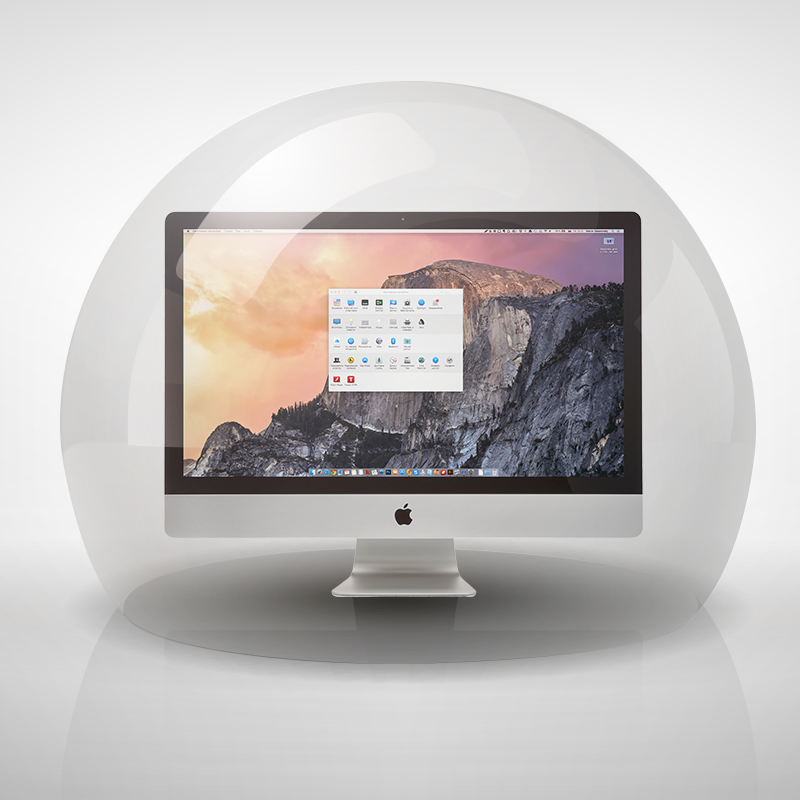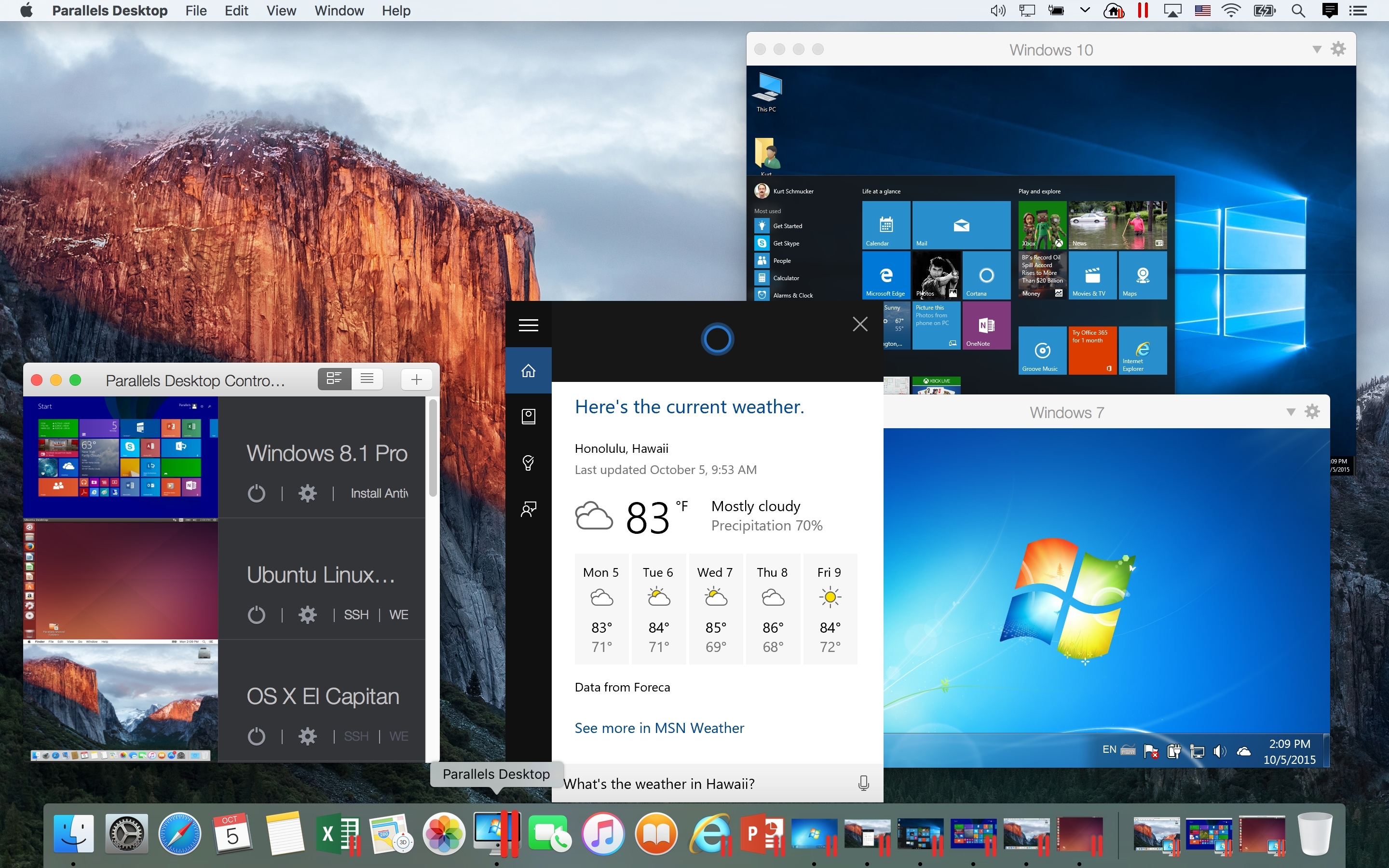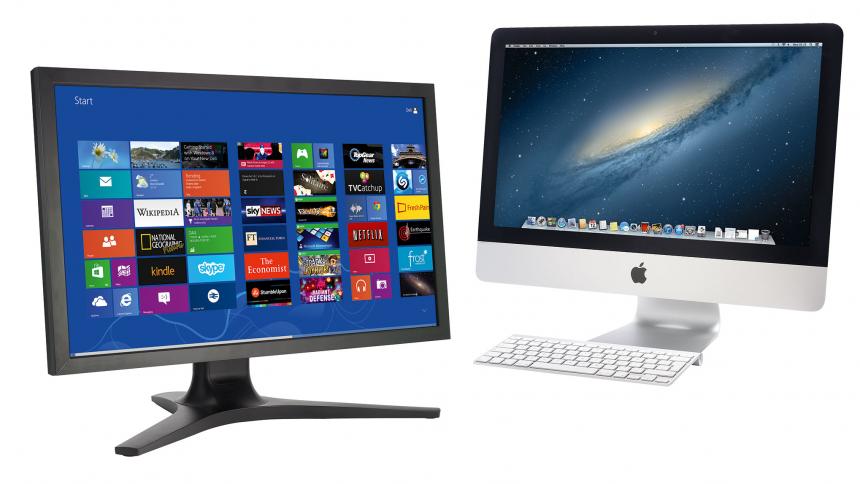The Mac OSX vs. Microsoft Windows debate runs hot and heavy, and one of the primary things people want to know is: which is safer? For years, Mac users have contended their devices can’t be hacked, but after recent attacks, we know they’re vulnerable. The question is, how vulnerable? We dive deep to uncover the truth.
“Macs are more secure than Windows” is a common statement heard by consumers, but we all know that a lie believed by a million people is still a lie. Does that mean Macs aren’t secure? We dig deep into the facts and expert opinions to find the important truth.
Why Does Security Matter?

Photo credit to Macworld UK
Internet and device security seems to be a hot topic these days, but what does it mean for most people, in real terms? For starters, internet security has implications for international affairs, but it also has implications for the security of our money, our physical security, and the security of our online reputations.
Let’s take a closer look at each:
Government Security in the Age of the Internet

Photo credit to Wikipedia
Data breaches are on everyone’s radar these days, and for a good reason: ransomware, a type of data breach in which hacker’s demand ransom money to release your files, forced payments to hit an incredible $2 billion last year. It’s predicted they’ll cost corporations $9 billion in 2018.
This means, of course, higher costs for consumers when the ransom fees are “passed along,” but it also means security breaches. You’re not just handing over your banking information; in many cases, you’re handing over sensitive documents, email correspondences, health information, and more.
Mega-corporations like Equifax and Yahoo, as well as governments entities, including the National Security Agency, have been compromised and there’s a potential for even greater injury. In the UK, when hospital computers were temporarily locked, surgeries were delayed.
Why does this matter in the Mac OSX vs. Windows debate? Because nearly 90% of today’s computers operate on one of the two operating systems. If they’re vulnerable; so are corporations, governments, and…us.
Bank Fraud and Identity Theft

Photo credit to Freepik
If government shutdowns don’t concern you, you might need to look a little closer to home. We rely heavily on Mac and Windows operating systems in our everyday lives, from online shopping to online grocery ordering to online banking.
An attack on our home PC is more than just an inconvenience or the loss of our files. It can also mean the loss of our identities. In fact, just the accidental omission of an “o” in the .com of a popular website can bring to a website that’s been booby-trapped with malware and viruses designed to steal your money and your information.
Security and the Internet of Things

Photo credit to Praetorian
The internet of things (IoT) is a relatively obscure term that encompasses everything from our home computers to our phones to our smart locks, smart televisions, and smartwatches. If it’s a device that exchanges information with another device, it’s a member of the IoT.
The trouble with the IoT is that these devices often have operating systems that are vulnerable to attack. Could a smart car, for example, be hacked and hindered? Tests have shown that it could. Could, say, your smart television be hacked so that you’ve listened in on? Yep, that, too.
These aren’t just personal concerns; these are industrial concerns. The IoT has applications that range from running huge combines harvesting wheat to flying drones to powering electrical grids. While some organizations have called for better protection, consumers by and large rely on manufacturers to protect them.
This brings us back to our home computers and our original question: when it comes to the two main computers most people use, which is safer, a Mac or a PC?
Let’s Define the Problem
First of all, when we talk about security breaches, we should be clear on what we’re discussing. In a Mac vs. PC showdown, what we’re comparing is Apple’s operating system (OS X) to Microsoft’s (Windows).
Linux, the third most popular PC operating system, is a great system but it’s a very distant third. Together, Windows and OS X dominate. The other thing that’s important to know is that, in the OSX vs. Windows debate, Windows has the lion share of the game.
Mac, despite its huge popularity, only has a small percent of the market share. This brings us to an interesting point: if Macs are much less popular than Microsofts, why are they such a pivotal part of this conversation?

Photo credit to Coherentnews.com
Let’s Take a Walk Down Memory Lane
To answer that, and to discover the source of the “Macs are secure” idea, we need to look back to some of Apple’s first Mac vs. PC ads, nearly a decade ago. In hilarious and brilliant Get a Mac campaign, Apple laid out the benefits of a Mac, including the “fact” that they were less likely to be infected with a virus than a Microsoft PC.
While this wasn’t the whole truth, it sparked the idea in hundreds of thousands of people’s minds, and a legend was born.
The fact is that Macs are not indestructible; they can, in fact, be infected with both viruses and malware. Recently, for example, the OXW/Pinhead-B trojan was discovered monitoring browsers without the knowledge of Mac users. What’s worse is that it could take screenshots of your internet activity, monitor your files, send email from your account, and more.
We’re Not in Kansas Anymore
Also, it’s not uncommon for vulnerability analyses performed on both the Mac OS X and the Microsoft Windows OS to find similar issues. Sometimes, hackers even find more vulnerabilities in the Apple than they do in the much more popular Windows!
While it’s completely untrue, then, to say that Macs are not impervious to attack, why do so many people feel so safe? It’s not uncommon for Mac users to go without installing security software; why does this false attitude persist?
Part of the reason for Macs’ sense of security is that, traditionally, there have not been as many bad players aimed at Macs. Because there are so many more Windows PCs, most attacks have been built and designed for those.
Of course, there are those computer experts who have found Macs more difficult to exploit. For malware to make a breach and cause damage, it has to be able to attack a vulnerability, and many feel that, on a surface level, Apples require the more complicated breaching protocol.

Photo credit to Difference Between
False Security
That should not, however, continue to lull consumers into a false sense of security. As Apples become more and more of an incentive for hackers, Mac users might be in more danger than Windows users, simply because they’ve taken so few precautions.
Unfortunately, it boils down to simply psychology: it doesn’t matter how great your security system is. If it’s not armed, attackers can get in and steal everything, which is exactly what might happen with a Mac if an Apple OSX user doesn’t exercise caution.
The Other Side
We’d be remiss if we didn’t also share the flip side of the argument, which is that Macs simply don’t pose an attractive enough threat to hackers. Since the vast majority of computers are running on Windows and hackers seem to want to create the most damage possible, Macs aren’t an opportunity like their more common counterparts.
It’s fairly common, in fact, to find somebody talking about how they’ve owned a Mac for over a decade that’s never had a security attack.
Plus, most attacks on Macs to date have been Trojans, which take advantage of a weakness in the end-user, not the computer, itself. A trojan works by disguising itself as something helpful; when the user clicks and installs it, it embeds itself and becomes very difficult to get rid of, and sometimes impossible to detect.

Photo credit to Business Wire
Lock Those Doors
Finally, the Mac OSX has some built-in security features that Windows computers don’t have. For example, Macs are Unix-based, a system that’s been likened to a series of fire doors, making the fire–or, the virus–less able to spread.
In some of the most recent versions, Apple has included what it calls a GateKeeper, which prevents Macs from downloading or installing any app or software that isn’t Apple-approved. It also comes preloaded now with Java and Flash plugins. Since these are often the bearers of Trojans for Macs, eliminating the need for downloading them eliminates a huge risk of infection.

Photo credit to ExtremeTech
Can We Be Safe?
What’s the bottom line for you, as you’re deciding between a Mac OSX and a Windows? Ultimately, the responsibility for protecting yourself is in your own hands. Frankly, while you might be less likely to encounter an attack with a Mac, it’s wise to prepare for one no matter what operating system you’re running.
Do your research and find a high-quality virus and malware protector for your computer. That’s the best way to protect yourself.

